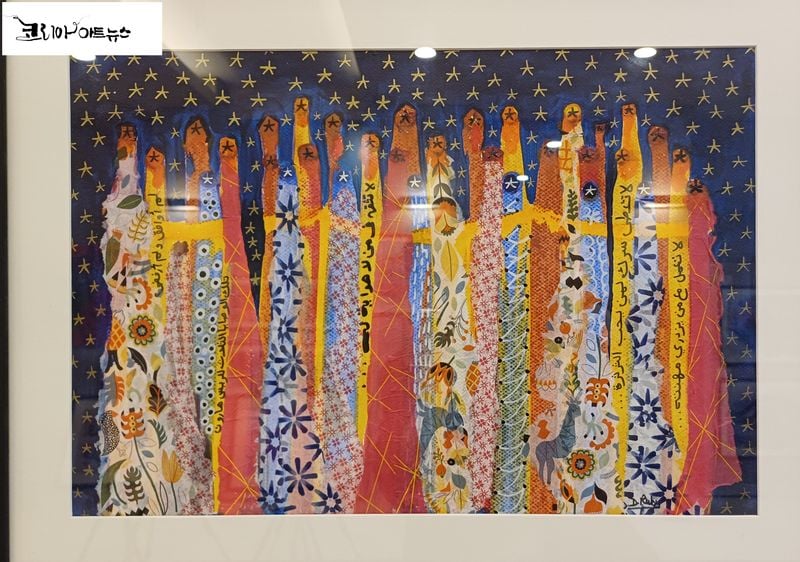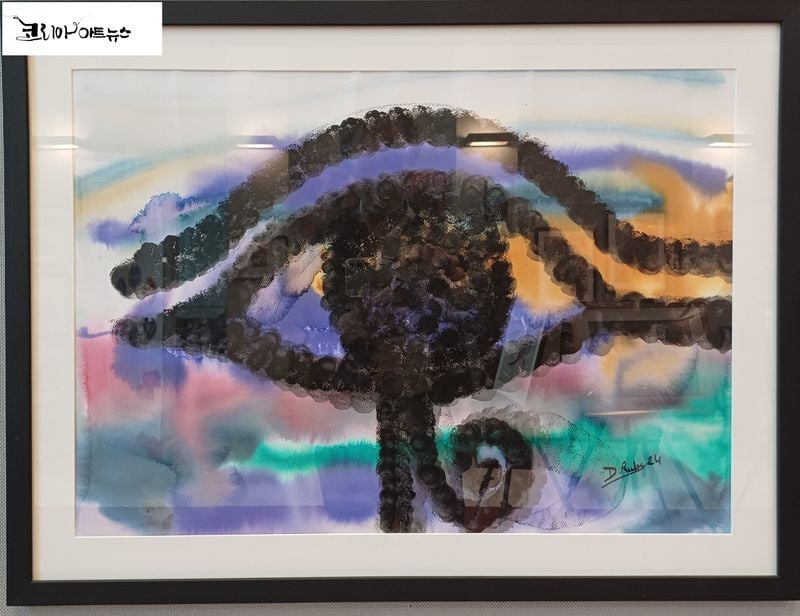From Nile to Han: Egyptian Artist Dina Fahmy El Rouby Weaves a Tapestry of Civilizations Through Art and AR
[Ryu Ahn Editor's Special Interview]
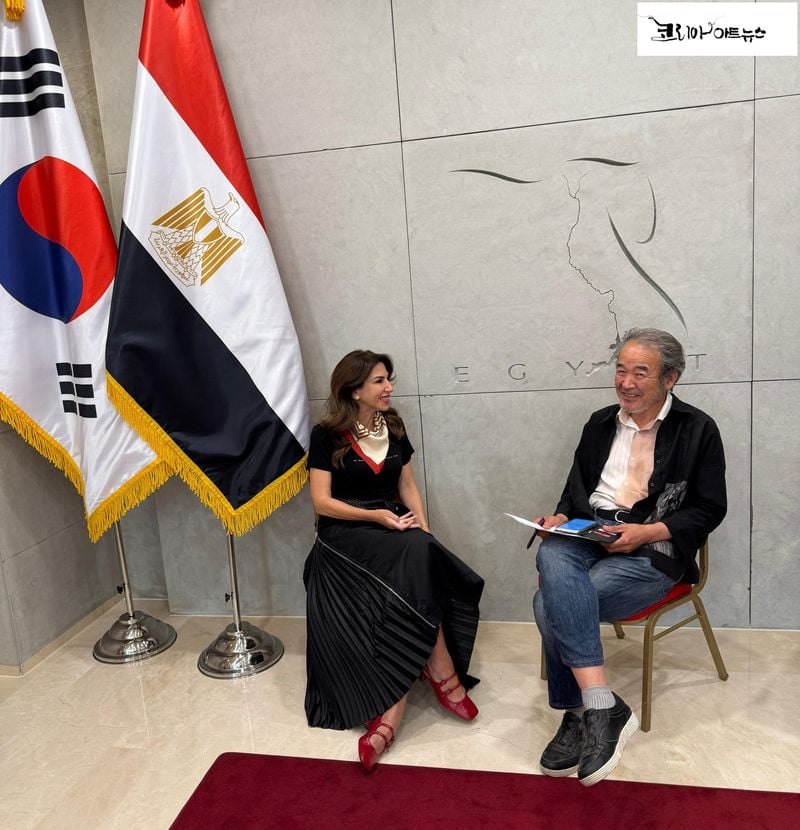
[Seoul=Korea Art News ] Editor Ryu Ahn = In a luminous celebration of the 30th anniversary of diplomatic and cultural relations between Egypt and Korea, internationally acclaimed Egyptian artist Dina Fahmy El Rouby unveiled her solo exhibition From Nile to Han at the Embassy of Egypt in Seoul.
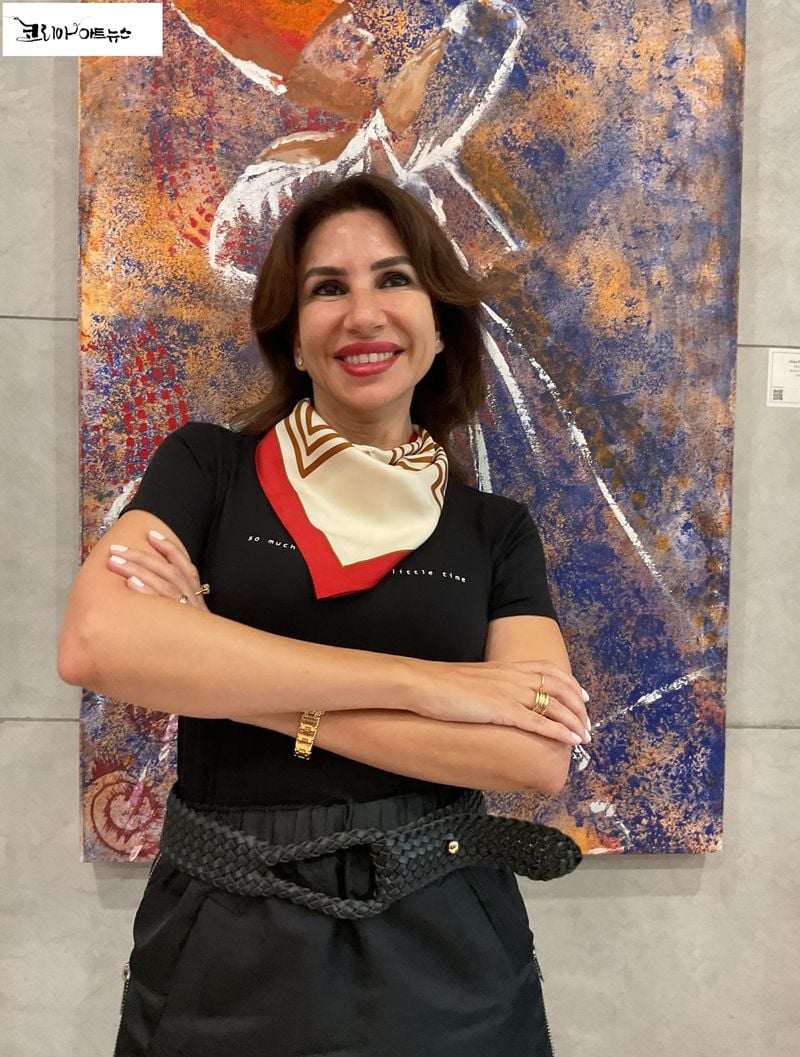
The exhibition, which opened with a VIP preview on June 13 and welcomed the public through June 17, is more than a showcase of visual art—it is a poetic dialogue between two ancient civilizations, brought to life through symbolism, storytelling, and cutting-edge technology.
“I wanted to express the classical beauty of Egypt and the dynamic energy of Korea as one,” El Rouby shared during an artist talk on June 16. “Both countries are rooted in deep history, and I believe art is the perfect language to connect them.”
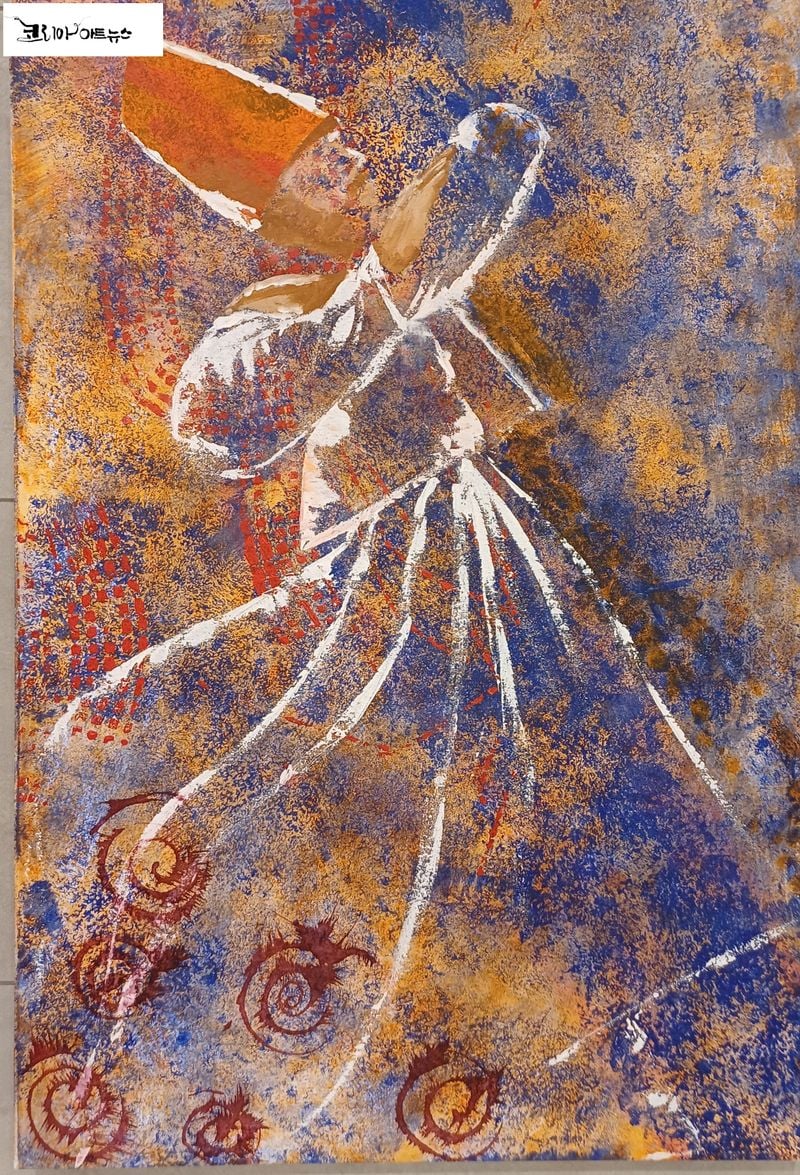
A Multisensory Journey Across Time and Culture
The exhibition features 45 conceptual artworks that blend pharaonic symbols, Arabic calligraphy, Sufi dance motifs, and Korean Hangeul. El Rouby’s signature style—layered, symbolic, and emotionally resonant—is elevated by her use of augmented reality (AR). Visitors scan QR codes embedded in the paintings to experience movement, sound, and interaction, transforming the gallery into a living, breathing cultural landscape.
“AR gives my paintings a soul,” she explained. “Unlike AI, which I feel lacks spirit, AR allows the artwork to breathe and emotionally connect with the viewer. It’s a bridge between tradition and innovation.”
Her creative process is deeply intuitive and personal. “I paint what I feel,” she said. “My energy at that moment dictates the colors and forms.” She also incorporates recycled and organic materials—such as spices from Egyptian markets, tree bark, and natural pigments—reflecting her commitment to sustainable artand environmental consciousness.
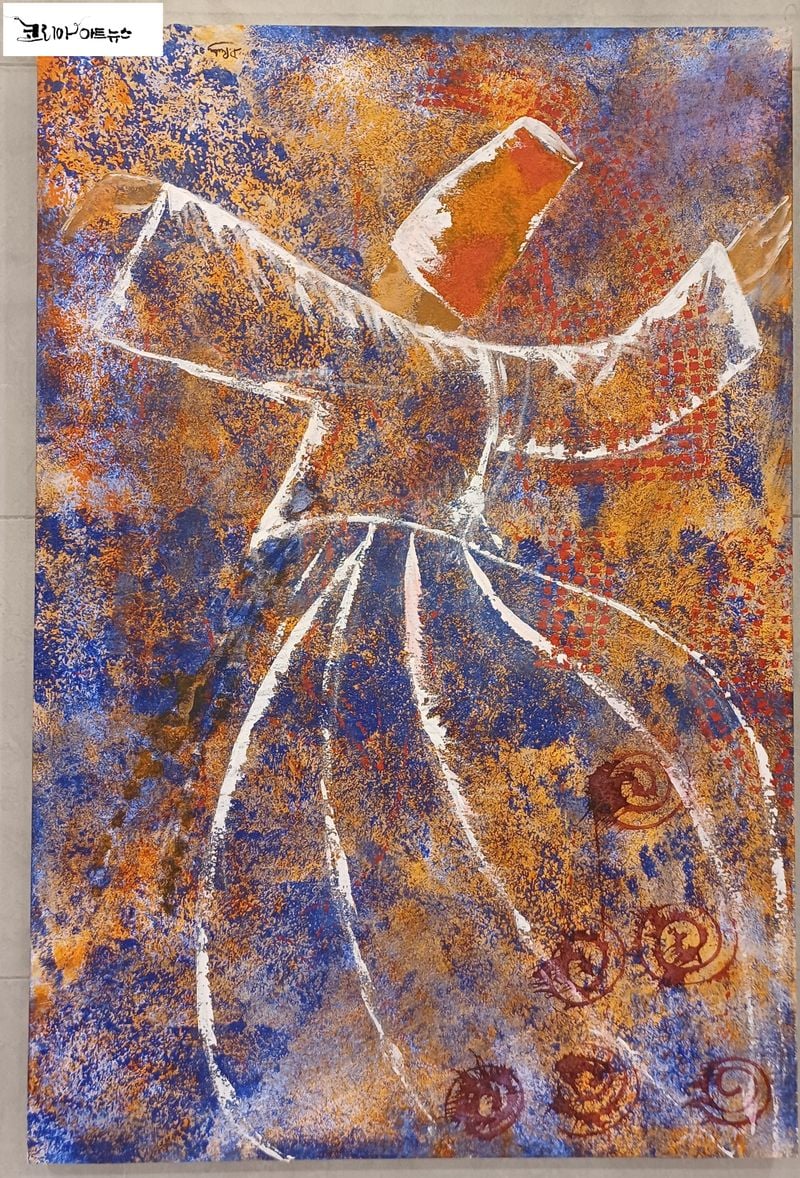
El Rouby’s journey into art began not in an atelier, but in the world of hospitality. She studied tourism and hotel managementand only began painting in her 30s. “It’s never too late,” she said. “Age is just a number. What matters is the age of your heart.”
To young Korean artists, she offered this advice:
“Learn the rules of art—understand the techniques, the history, the structure. Then break them. That’s how you find your own voice.”
Her message is one of liberation through knowledge, and expression through authenticity.
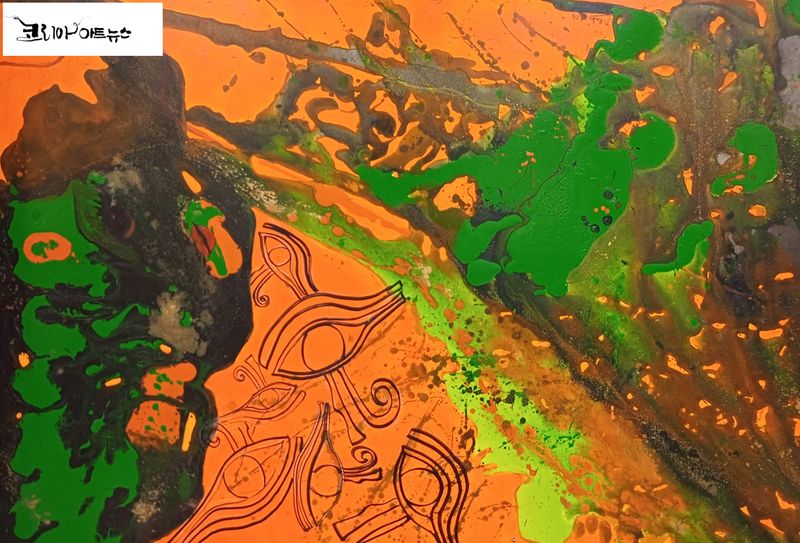
Art as a Bridge, Not a Wall
For El Rouby, art is not merely visual—it is diplomatic, emotional, and spiritual. “You don’t need to speak the artist’s language to understand their work,” she said. “Art is a universal language that transcends borders and time.”
She was deeply moved by her experience in Korea. “Koreans are incredibly stylish, generous, and emotionally expressive,” she said. “I felt a real connection here.
Everything is so green and vibrant—it reminded me of Egypt in unexpected ways.”
The exhibition’s title, From Nile to Han, is a metaphor for this connection. “We have the Nile, you have the Han. Both are lifelines of culture and history,” she said. “That’s why I chose this title—it’s a poetic bridge between us.”
Symbols, Stories, and Sustainability
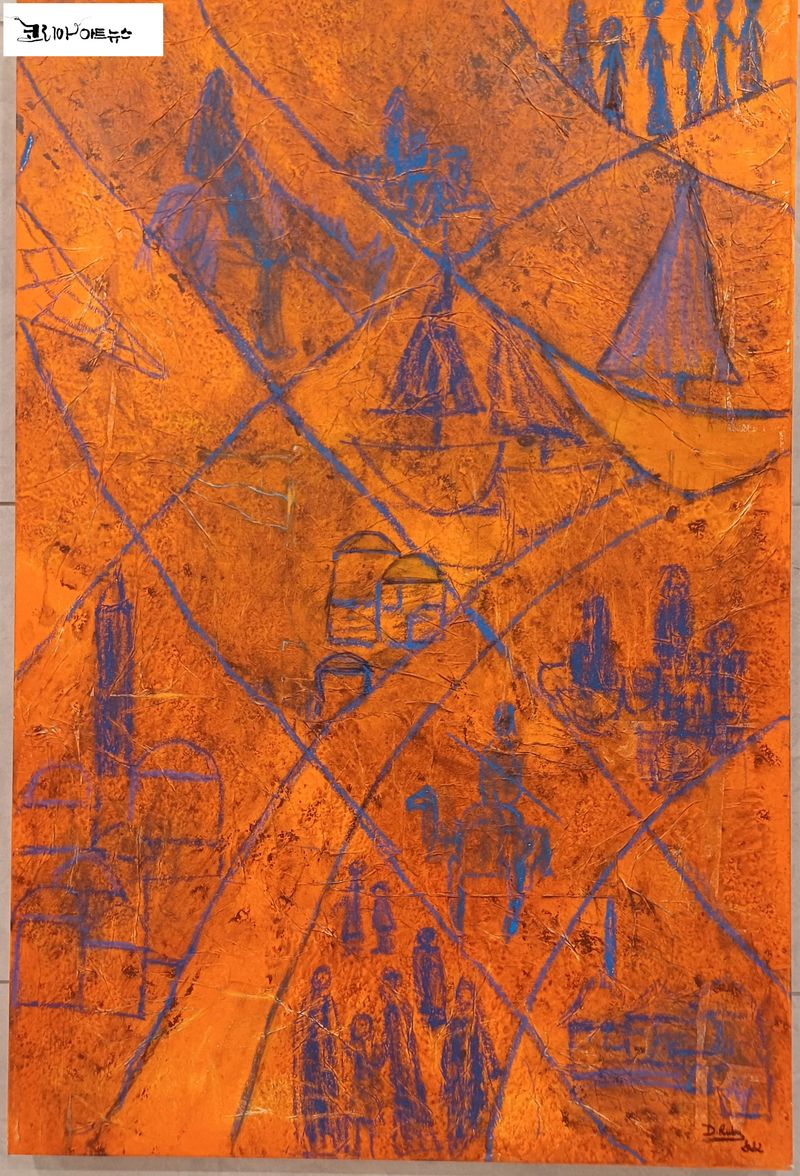
El Rouby’s work is rich with Egyptian iconography: the ankh(key of life), the Eye of Horus(protection), the lotus flower(eternity), and the solar disk with hands(power and giving). These symbols are not decorative—they are narrative tools that connect the past to the present.
She also integrates Sufi spirituality, referencing the whirling dervish dance as a symbol of divine connection. “It’s a traditional spiritual dance that represents the soul’s journey,” she said. “Interestingly, the garments resemble the Hanbok.”
Her use of ARis not just technical—it’s philosophical. “AI feels soulless to me,” she said. “But AR enhances the spirit of the painting. It allows the viewer to feel the heartbeat of the work.”
A Cultural Ambassador with a Global Vision
El Rouby has exhibited in Paris, London, Berlin, Vienna, Rome, Madrid, Prague, and Dubai, but this was her first solo exhibition in East Asia. “It means a lot to me,” she said. “It opens new possibilities and connections.”
She praised the efforts of Ambassador Khaled Abdel Rahman, who invited her to Seoul and has been instrumental in fostering Egypt–Korea cultural exchange. “He’s doing a great job,” she said. “There’s even an immersive Egyptian history experience happening at a hotel here.”
Looking ahead, she hopes to collaborate with Korean artists and is planning future exhibitions in Thailand and beyond. “Art is soft power,” she said. “It brings people together, fosters empathy, and builds bridges between nations.”
“Art speaks a universal language—one that transcends borders, politics, and languages—and in doing so, it fosters mutual understanding and respect among people of different backgrounds. Mrs El Rouby’s exhibition is a beautiful example of how cultural expression can act as a form of soft power, advancing diplomacy by connecting hearts and minds. I applaud and extend my appreciation to the remarkable artist Mrs Dina Fahmy El Rouby for contributing to our shared mission of peace, collaboration, and cultural dialogue creating a powerful bridge between our nations.”
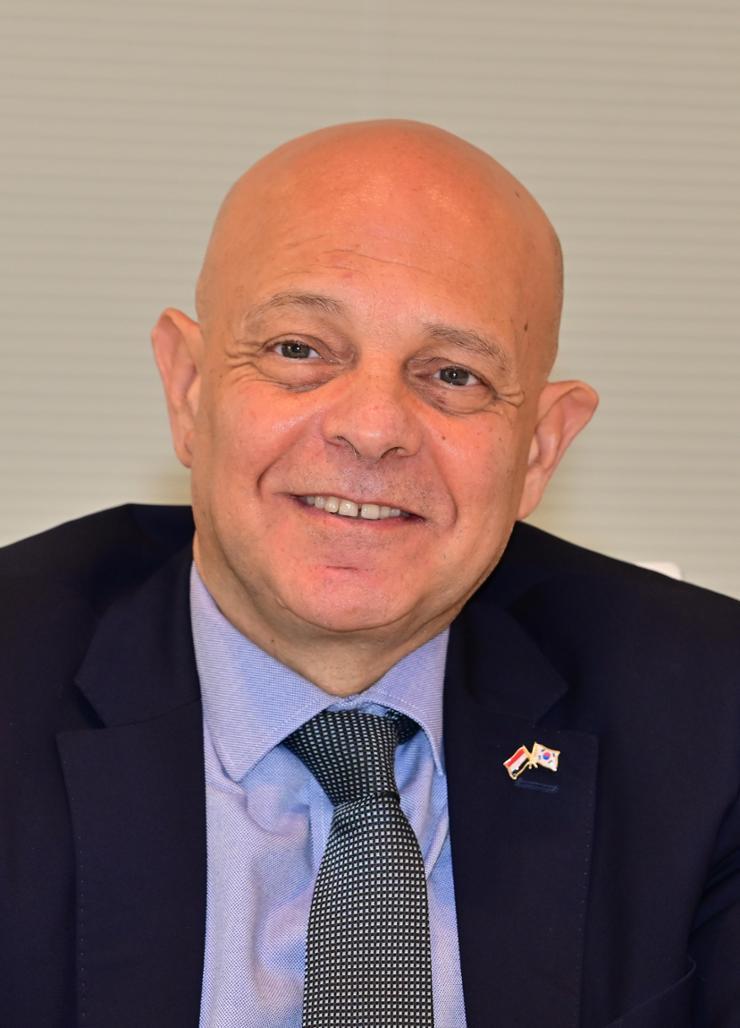
Said Ambassador Khaled Abdel Rahman who also, to mark the occasion, personally invited a distinguished group of ambassadors, diplomats, politicians, artists, intellectuals, academics, and art enthusiasts to the exhibition, offering them the opportunity to witness Egyptian art, taste authentic Egyptian cuisine, and immerse themselves in the spirit of Egyptian culture alongside the artist herself. “It was important to create not just an exhibition, but an experience,” he added. “One that brings people together and celebrates what Egypt represents.”
"To my Korean friends: Let art guide you beyond borders. Embrace your culture, but never stop exploring others. You are part of a global soul that connects through creativity."
A Final Invitation: Drink from the Nile
As the interview drew to a close, El Rouby offered a heartfelt invitation:
“Come visit Egypt. Stay at least ten days. And drink from the Nile—because we say, if you do, you’ll always return.”
Her words lingered like a poem—an echo of the exhibition’s spirit, where rivers become metaphors, and brushstrokes become bridges.
